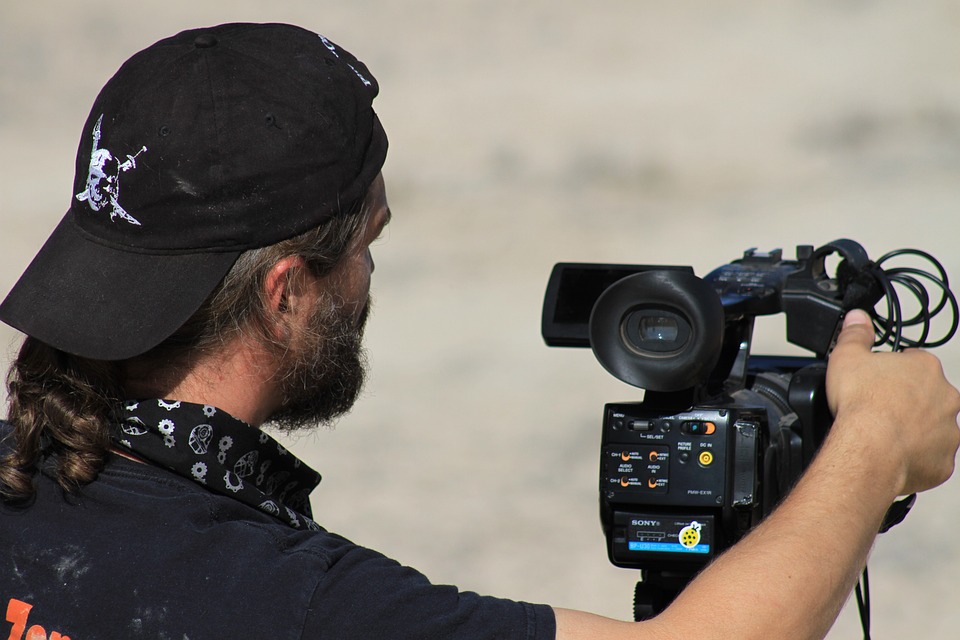Introduction
Directing is a unique and multifaceted role that requires a diverse skill set to excel in. Directors are responsible for overseeing the creative vision of a project, managing a team of talented individuals, and ensuring the successful execution of a production. In this article, we will explore 10 essential skills that every director should master to succeed in their role.
1. Leadership
Effective leadership is key to successful directing. Directors must be able to inspire and motivate their team, communicate their vision clearly, and make tough decisions when necessary. Strong leadership skills will help directors navigate the challenges of the production process and guide their team to success.
Key Points:
– Develop strong communication skills
– Inspire and motivate your team
– Make decisions with confidence
2. Creative Vision
Directors must have a clear and compelling vision for their projects. This vision guides every aspect of the production process, from casting and set design to editing and post-production. Developing a strong creative vision will help directors stay focused and ensure that their project is cohesive and impactful.
Key Points:
– Develop a clear and compelling creative vision
– Stay true to your vision throughout the production process
– Collaborate with your team to bring your vision to life
3. Collaboration
Successful directing requires strong collaboration skills. Directors must work closely with their team, including writers, actors, producers, and crew members, to bring their vision to life. Collaborating effectively with others requires open communication, compromise, and a willingness to listen to different perspectives.
Key Points:
– Communicate openly and honestly with your team
– Listen to and consider different perspectives
– Be willing to compromise when necessary
4. Time Management
Directors are often working on tight deadlines and must be able to manage their time effectively. Time management skills are crucial for staying on schedule, meeting deadlines, and ensuring that the production runs smoothly. Directors must be able to prioritize tasks, delegate responsibilities, and stay organized throughout the production process.
Key Points:
– Develop strong time management skills
– Prioritize tasks and set deadlines
– Delegate responsibilities to your team
5. Problem-Solving
Directing is full of challenges and unexpected obstacles that directors must be prepared to handle. Strong problem-solving skills are essential for overcoming these challenges and keeping the production on track. Directors must be able to think creatively, make quick decisions, and adapt to changing circumstances.
Key Points:
– Develop strong problem-solving skills
– Think creatively and adapt to changing circumstances
– Remain calm under pressure
6. Technical Skills
Directors must have a strong understanding of the technical aspects of filmmaking. This includes knowledge of camera angles, lighting, sound design, and editing techniques. Having strong technical skills will help directors communicate effectively with their team, make informed creative decisions, and ensure the quality of the final product.
Key Points:
– Develop a strong understanding of filmmaking techniques
– Stay up to date on the latest technology and trends
– Communicate effectively with your team about technical aspects of the production
7. Emotional Intelligence
Directors must have strong emotional intelligence to work effectively with their team and bring out the best in their actors. Emotional intelligence involves being aware of your own emotions and those of others, managing your emotions effectively, and building positive relationships with your team.
Key Points:
– Develop strong emotional intelligence
– Be aware of your own emotions and those of others
– Build positive relationships with your team
8. Adaptability
Directing requires the ability to adapt to changing circumstances and unexpected challenges. Directors must be flexible, open-minded, and willing to pivot when necessary. Being adaptable allows directors to overcome obstacles, make quick decisions, and keep the production on track.
Key Points:
– Be flexible and open-minded
– Adapt to changing circumstances
– Make quick decisions when necessary
9. Networking
Networking is crucial for directors to build relationships with industry professionals, find new opportunities, and promote their work. Directors must attend industry events, participate in film festivals, and connect with other filmmakers to grow their network and advance their career.
Key Points:
– Attend industry events and film festivals
– Connect with other filmmakers and industry professionals
– Promote your work and build your brand
10. Storytelling
At the heart of directing is storytelling. Directors must be able to create compelling narratives that engage and entertain audiences. Strong storytelling skills involve understanding story structure, character development, and pacing, and using these elements to craft a captivating and memorable film.
Key Points:
– Understand story structure and character development
– Develop strong pacing and narrative skills
– Create compelling and memorable stories
Conclusion
Directing is a challenging and rewarding role that requires a diverse skill set to succeed. By mastering these essential skills, directors can navigate the complexities of the production process, bring their creative vision to life, and create impactful and memorable films. Whether you are a seasoned director or just starting out in the industry, honing these skills will help you excel in your role and achieve your creative vision.
